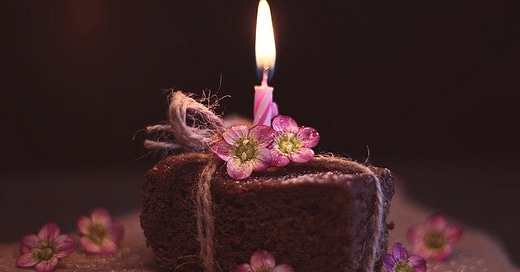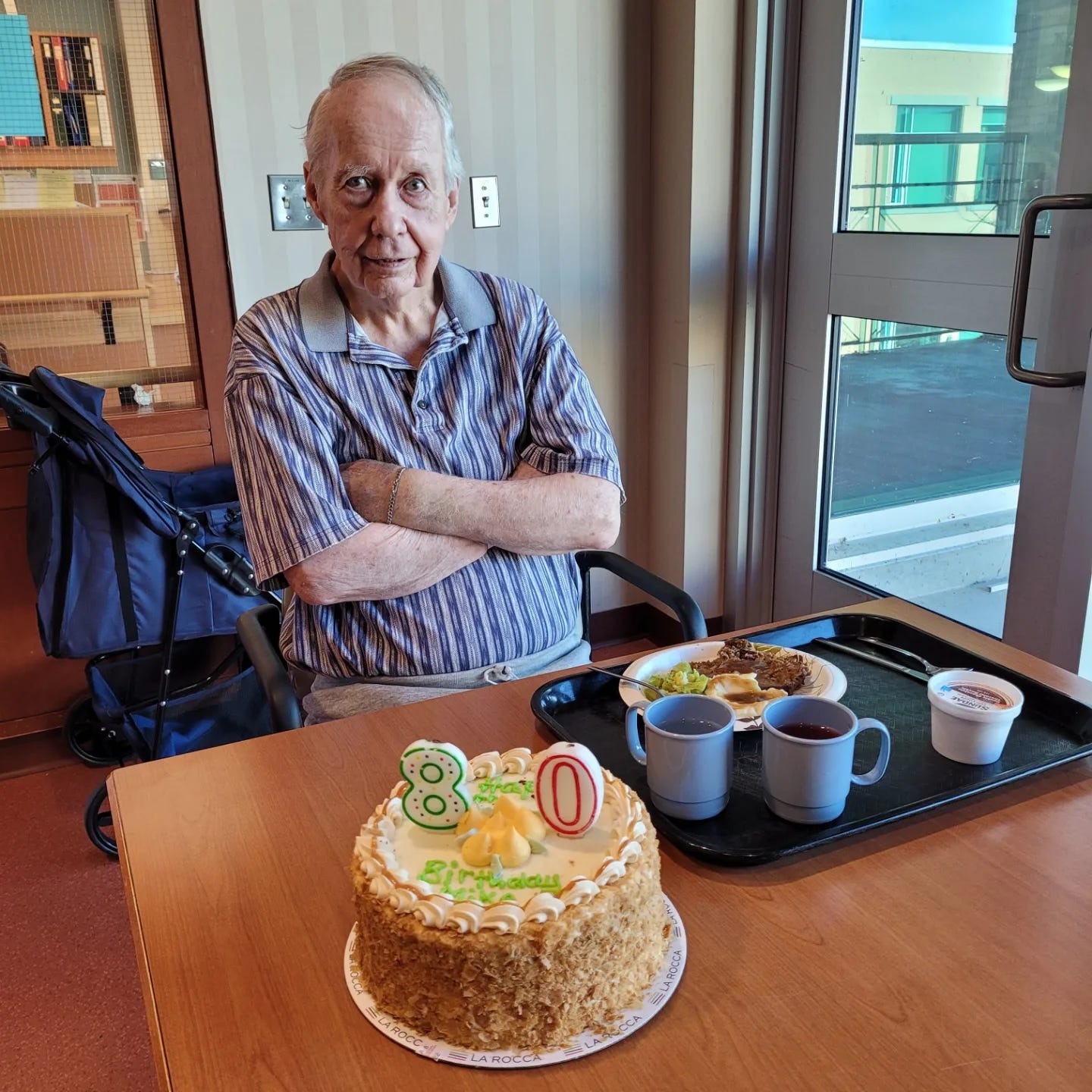Birthday guilt is a complex mix of sorrow, longing, and conflicted emotions that arrives with birthdays after loss. In my experience, it remains one of grief's most misunderstood companions.
Whether it's your own birthday without someone you love, or their birthday without them here, these dates can feel like emotional landmines in our calendar.
My first birthday after my sister Tracy’s death surfaced all kinds of emotions.
No one prepared me for the guilt that arose, unexpected, as my birthday loomed near. I remember telling my colleague that I simply wanted this birthday to go unacknowledged. I didn’t want people to sing me happy birthday. I didn’t want to buy the cake to share with my colleagues. I didn’t want hugs and candles.
I wanted silence and space.
The Weight of Birthday Guilt
Birthdays after loss carry a particular weight. We might feel guilty for celebrating when someone we love can't be here. We might feel guilty for not celebrating, as if we're dishonoring their memory. We carry "what ifs"—what if they were here to see this milestone? We carry "if onlys"—if only I had one more birthday with them.
Your own birthday might feel impossible to celebrate. Their birthday might feel like a day to endure rather than remember. Society expects celebration, but our hearts hold complexity that doesn't fit neat expectations.
And then there’s guilt. Guilt for not doing enough to remember her. Guilt for not helping him enough when he was struggling with dementia. Guilt for not being the one to die.
Guilt is one of the most common and painful companions of grief, yet it's rarely talked about openly. This guilt typically shows up in several ways. There's the guilt of things left unsaid—conversations we wish we'd had, words of love or forgiveness we never expressed. Many people torment themselves with regrets about the last interaction they had with their loved one, especially if it was mundane or even tense. There's also survivor's guilt—wondering why you're still here when they're not or feeling wrong about continuing to live and find moments of joy.
Sometimes the guilt is about the relationship itself. People remember times they were impatient, selfish, or absent when their loved one needed them. They might feel guilty about not visiting enough, not calling more often, or being too busy with their own lives. Relief can bring its own guilt too—if someone was suffering or if the relationship was difficult, feeling relieved can seem like a betrayal.
I know a part of me was relieved when my dad died. It was excruciating watching him slip away, slowly, as the disease progressed.
The cruel irony is that guilt often strikes hardest in those who cared most deeply. The very fact that you're experiencing this guilt usually reflects how much you loved this person and how seriously you took your relationship with them. Perfect relationships don't exist, and neither do perfect people. The guilt we're carrying doesn't erase the love we shared or make us bad people.
It makes us human.
Grief guilt tends to soften with time, though it may never disappear entirely. On birthdays, I have found rituals help.
The Power of Ritual
Rituals offer us a pathway through this darkness. These intentional, symbolic acts create meaning from our pain and provide structure when everything feels chaotic. Through ritual, we acknowledge our deep attachments to the people, places, and experiences we've lost, creating sacred space to be fully present with our grief.
Rituals don't eliminate our pain—they honor it. They remind us that while pain may be unavoidable in the face of loss, endless suffering is not our only option.
This year, I’ve curated a special birthday celebration that begins with a morning yoga routine, then a spa experience with my mom and mom-in-law, followed by lunch. We’ll then visit my deceased sister Tracy and father Michael. I’ll spend the afternoon walking in my Healing Woods and then completing with a family dinner with my family.
I’m already feeling less heavy as I design the kind of day I’ve been longing to experience.
What follows are some birthday rituals that can help ease our suffering. I invite you to try one and see where it takes you. For grievers whose loss experience just happened, you may choose to bypass your birthday celebration altogether. Remember, the only right way to grieve is your way.
Being intentional helps.







